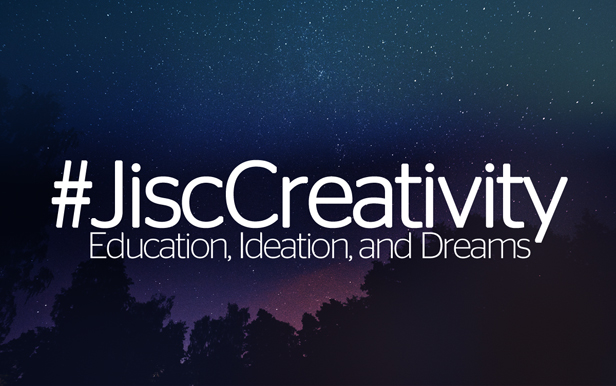You have /5 articles left.
Sign up for a free account or log in.
“No agenda, no presentations, just a few primers...bring people together to talk about what is possible, what the trends are and see if there are any potential projects in amongst the ideas.” That was the description of the Jisc Creativity Workshop that I attended last week. Knowing that Jisc is about all things digital in UK higher education, I went up to Birmingham with a sense of curiosity and hoped for an interesting experience. Fortunately, with Lawrie Phipps at the helm, we were treated to a couple days worth of ideation and conversation.
Unlike most think-tank-esque events that I've been to, Jisc Creativity was fairly wide open in terms of topic areas. Higher education and technology were the broad-based themes, but the projects/ideas that were generated were quite diverse. Usually, I am not a huge fan of group activities. However, Jisc had assembled a wonderful group of attendees including: Sarah Davies, Peter Reed, Andy McGregor, Sheila MacNeill, Simon Thomson, Sarah Knight, Dave White, and Sam Biggs. Each time a group would form, new ideas, projects, concepts, challenges, and opportunities would emerge. I don't think I've ever seen as many ideas/thoughts on Post-it notes in my entire career.
As I am learning everything about UK higher education as fast as I possibly can, Jisc Creativity made my head hurt. It was the kind of dissonance that you experience when you're in a high-level learning/creative experience. I felt very fortunate to attend. There were several themes/concepts that kept coming up throughout the event. Due to my student affairs background, I found myself going back to my academic roots to look for familiar solutions to new problems/challenges.
- Teaching and Learning - Because of the differences in UK higher education compared to the US model, I found it fascinating how one-sided the conversations generally were when it came to teaching and learning being looked at almost solely from within a formal class/module experience. In my experience as both an educator and a learner, learning takes place in higher education spaces that aren't always formally defined. Co-curricular concepts with technology-based tools were mentioned a couple of times at the event.
- Student Experience - Student affairs is not a big deal in the UK. The institutional clout that student affairs divisions have in the US does not exist in the UK. This brings the issue of student experience into an interesting space as it hasn't really been a major focus area in UK higher education. However, that is definitely going to change in the near future due to a shifting UK HE model. Stay tuned for more on this in future posts.
- Recruitment Strategic enrollment management (SEM) is a major aspect of US higher education. In the UK, at least historically, SEM hasn't been nearly as prominent. Using technology to increase enrollment could be a big issue in the UK in the next decade.
- Retention - From what I can tell, retention of students in the UK isn't as big of an issue as it is in the US. However, look for the retention/advising technology providers to make significant inroads in the near future as UK higher education becomes much more competitive.
- Engagement - Of course, I talked quite a bit about how institutions could use social media for student engagement. It just makes good sense. Now if we could just get more individuals to lead and inspire via their own accounts!
- Digital Literacy - Employability was often talked about at Jisc Creativity. Thankfully, Jisc has a great start on making the push for increased digital educational efforts.
- Organizational culture - Whenever great ideas are tossed around, organizational culture usually follows. Culture, as we know, eats strategy for lunch. Whatever projects come out of Jisc Creativity will have to work within existing organizational issues...or get really radical and make pushes for large-scale organizational changes in order to make space for innovative technology-based solutions.
- Customer Service - Calling students "customers" is almost always looked at as being a bad idea. However, with the rise of services and amenities to amplify the student experience, expectations of quality customer service will emerge. Students pay a lot of money to learn, grow, develop, and attend an institution. Higher education may not always be a business, but it often acts like one.
All in all, my perception of Jisc Creativity was that the attendees were an extremely creative bunch of UK higher education thinkers/creators. Plus, the environment provided by Jisc was conducive to ideas, dreaming, thinking, and making. I can't wait to see what types of projects the folks at Jisc champion/nurture that have origins from #JiscCreativity.
For more on Jisc Creativity, I would recommend checking out these excellent blog posts from Peter Reed and Sheila MacNeill.
Do you tweet? Let's connect. Follow me on Twitter.





